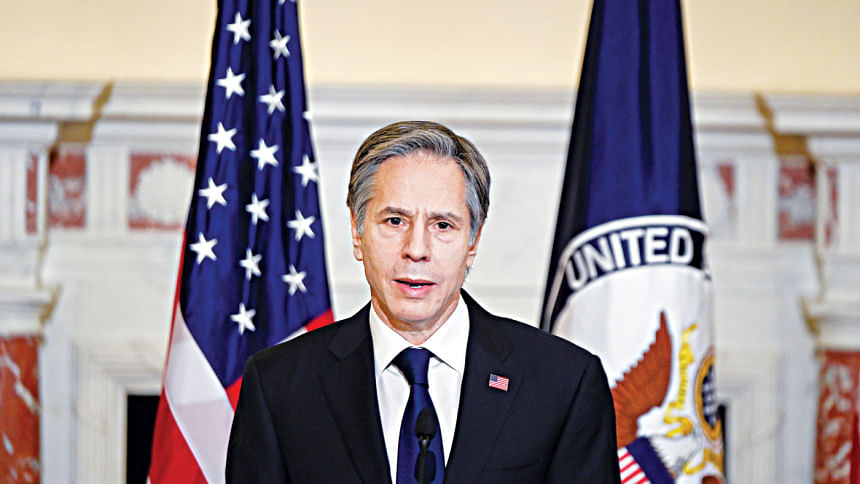US ready to confront China

Secretary of State Antony Blinken has said that the United States was ready to confront China wherever necessary, calling Washington's ties with the Asian power the "biggest geopolitical test" of the century.
In his first major speech, Blinken promised that President Joe Biden's administration will prioritize diplomacy over military action and build cooperation with the world on global challenges such as climate change and Covid-19.
"We will manage the biggest geopolitical test of the 21st century: our relationship with China," Blinken said at the State Department Wednesday.
He vowed to champion the rights of Hong Kong and the ethnic Uighurs, saying that if not, "China will act with even greater impunity."
"China is the only country with the economic, diplomatic, military and technological power to seriously challenge the stable and open international system -- all the rules, values and relationships that make the world work the way we want it to," he said.
"Our relationship with China will be competitive when it should be, collaborative when it can be and adversarial when it must be. And we will engage China from a position of strength."
Blinken's remarks come amid a hardening of views in Washington since the turbulent presidency of Donald Trump, who alongside his top diplomat Mike Pompeo made a hard line on China a signature campaign issue and castigated Beijing over the pandemic and trading practices.
Blinken has said he does not fundamentally disagree with Trump on China but believes the United States can be more effective -- through working with allies and, in narrow cases, finding common ground. The Interim National Security Guidance pointed to climate change, global health, arms control and nonproliferation as areas to seek China's cooperation.
The strategy said that China's leaders too often "behave aggressively and coercively" and vowed that the United States would "position ourselves, diplomatically and militarily, to defend our allies."
The Biden administration also pledged to keep up US support for Taiwan, a self-governing democracy that is claimed by Beijing.
Blinken also voiced alarm over an "erosion of democracy" worldwide. But he said Biden had no interest in bringing democracy to the world "through costly military interventions or by attempting to overthrow authoritarian regimes by force."
"We have tried these tactics in the past. However well intentioned, they haven't worked," Blinken said.
He was likely alluding to the 2003 Iraq invasion as well as the 2011 intervention -- which he supported as part of Barack Obama's administration -- in support of an uprising that overthrew Libyan dictator Muammar Gaddafi, ushering in a decade of chaos.

 For all latest news, follow The Daily Star's Google News channel.
For all latest news, follow The Daily Star's Google News channel. 



Comments